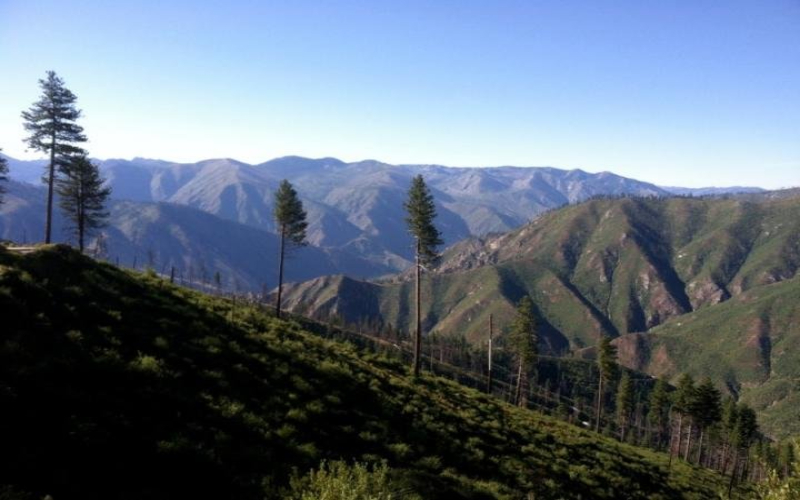11 Dec 2024

Tired Earth
By The Editorial Board

Researchers analyzed data from nearly 1,500 sites in five states -- Colorado, Wyoming, Washington, Idaho, and Montana -- and measured more than 63,000 seedlings after 52 wildfires that burned over the past three decades. They wanted to understand if and how changing climate over the last several decades affected post-fire tree regeneration, a key indicator of forest resilience.
They found sobering results, including significant decreases in tree regeneration following wildfires in the early 21st century, a period markedly hotter and drier than the late 20th century. The research team said that with a warming climate, forests are less resilient after wildfires.
"We often talk about climate change and how it will affect us in the future, but the truth is we are already seeing those changes," said Camille Stevens-Rumann, assistant professor in the Department of Forest and Rangeland Stewardship at CSU. "Disturbances like wildfires are a catalyst for change. In many places, forests are not coming back after fires."
"What we've found is dramatic, even in the relatively short 23-year study period," she added.
Historically, forests change over time. But the research team said their findings suggest that it will take much longer after a wildfire for sites to return to forests, if they return at all. In one-third of the areas studied, researchers found no seedlings growing. The hardest-hit sites were the warmest and driest, and those where fires burned so severely that few trees survived to provide seed.
"Even if we plant trees in those areas, it's unlikely to be successful," said Stevens-Rumann. "We need to start expecting that these landscapes aren't going to look the same in the future, whether it's reduced density of trees or no longer a forest."
One of the big surprises for the team was seeing the data for the average annual water deficit at study sites.
"In my lifetime, you can see these sites becoming substantially hotter and drier," she said. "Many forest managers want post-fire years to be cooler and wetter, to help with regeneration, and that's just not happening anymore, or happening very infrequently."
What can be done to combat or lessen these effects? Stevens-Rumann said that while trees similar to the ones that burned have typically been planted on a fire-ravaged site, that may no longer be the smartest approach. She's been meeting with land managers and foresters to discuss what might be better.
"Managers may want to plant species that are adapted to the current and future climate, not the climate of the past," she said. "There also are areas that could support certain tree species but there isn't any regeneration currently; these are the ideal places to plant after a fire."
The problem could also be addressed when a fire happens.
"Another strategy is to foster fires burning under less extreme conditions, so that more trees survive to provide seed for future forests," said Penny Morgan, professor at the University of Idaho and co-author of the study. "When fires are patchy, more areas are within reach of a surviving tree."
The research team includes scientists from University of Idaho, The Nature Conservancy, University of Montana, University of Washington, University of Colorado -- Boulder, Tall Timbers Research Station and Land Conservancy, and the Washington State Department of Natural Resources.
The Department of Forest and Rangeland Stewardship is part of the Warner College of Natural Resources at Colorado State University.
Source : www.sciencedaily.com
Comment